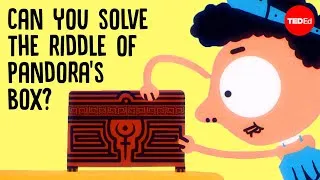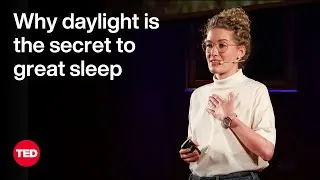Learning English – Spoken English Pronunciation of the Most Common English Words
551,676 views ・ 2018-03-20
請雙擊下方英文字幕播放視頻。
00:00
Today you’re studying the pronunciation
of the 100 most common words in American English.
0
590
6610
Today you’re studying the pronunciation of the 100 most common words in American English.
今天,你會學到美式英語當中,100個最常用單字的發音。
00:07
This is video 2 in the series. If you didn’t
see video one, click here to watch it now.
1
7200
5840
This is video 2 in the series. If you didn’t see video one, click here to watch it now.
這是第2支影片。如果你沒看過第1支的話,現在就點這裡看吧。
00:13
It is important to understand what we’re
doing here with studying reductions.
2
13040
9700
It is important to understand what we’re doing here with studying reductions.
學習弱化讀音時,了解到底是什麼一回事是重要的。
00:22
We’re starting today with number 11, the
word ‘it’. This word doesn’t reduce
3
22740
6020
We’re starting today with number 11, the word ‘it’. This word doesn’t reduce
我們今天從第11個單字開始,單字「it」。這個單字是不弱化的。
00:28
in a sentence, we don’t drop or change a
sound, but it said very quickly. And the pronunciation
4
28771
6209
In a sentence, we don’t drop or change a sound, but it is said very quickly. And the pronunciation
在句子裡,我們不會丟掉或是改變聲音,可是講得超快。而「T」的
00:34
of the T depends on the next word. If it begins
with a consonant, this T is a Stop T: it,
5
34980
6970
of the T depends on the next word. If it begins with a consonant, this T is a Stop T: it,
發音要看下一個單字是什麼。如果是子音開頭的,這裡的「T」是個塞音T:it,
00:41
it, it. It won’t be. It, it won't. Very
fast, it. If the next word begins with a vowel
6
41950
8780
it, it. It won’t be. It, it won't. Very fast, it. If the next word begins with a vowel
[ ɪt| woʊnt| bi ]
it, it. It won’t be. It, it won't. 唸得超快的。如果下一個單字的開頭是母音
00:50
or diphthong, then this T is a Flap T, linking
the two words together. It always, it always,
7
50730
8090
or diphthong, then this T is a Flap T, linking the two words together. It always, it always,
[ ɪd ˈɔlˌweɪz ]
或是雙子音的話,那麼這裡的「T」是個彈舌T,把兩個單字黏在一起。It always, it always,
00:58
it it it it, it always, it always. Said very
quickly. It always. Nothing too crazy here,
8
58820
9160
it it it it, it always, it always. Said very quickly. It always. Nothing too crazy here,
it it it it, it always, it always. 唸得超快。 It always. 這個沒有很難,
01:07
just say the word quickly. Not IT, but it.
9
67980
6140
just say the word quickly. Not IT, but it.
很快地把這個單字唸出來就是了。 不是「IT」[ ɪt ],而是「it」[ it| ]。
01:14
Number 12, one of my all-time favorite reductions:
For. We almost never say it this way. We say
10
74120
7919
Number 12, one of my all-time favorite reductions: For. We almost never say it this way. We say
第12個,其中一個我永遠都那麼愛的弱化單字:For
[ fɔr ]。我們幾乎都不會這樣子把它唸出來。我們唸
01:22
‘fer’. Isn’t that funny? I had a student
once who lived in America and was married
11
82039
6341
‘fer’. Isn’t that funny? I had a student once who lived in America and was married
「fer」[ fər ]。是不是很搞笑呢?我曾經有一位跟美國人結婚
01:28
to an American. She told her husband how she
was learning about this reduction. And his
12
88380
5339
to an American. She told her husband how she was learning about this reduction. And his
,而且住在美國的學生。她跟老公講說她在學這一個弱讀單字。然後他的
01:33
response was, “that’s ridiculous". We
don’t do that, we don't pronounce that fer.
13
93720
6880
response was, “that’s ridiculous. We don’t do that, we don't pronounce that fer."
回應是:「很荒唐。我們不會這樣子,我們不會這樣子唸 [ fər ]」
01:40
Then later, he did it, as he was speaking
naturally, and she pointed it out. Most Americans
14
100600
5719
Then later, he did it, as he was speaking naturally, and she pointed it out. Most Americans
然後,過了一陣子,就在他自然而然地講話的時候,他就這樣子唸出來了。她便指出來了。很多美國人
01:46
aren’t even aware of these crazy reductions
that we do. So, to make this reduction drop
15
106319
5851
aren’t even aware of these crazy reductions that we do. So, to make this reduction drop
根本就沒注意到我們所唸的,這些腦袋進水的弱讀方式。那麼,要弱化這個單字,丟掉
01:52
the vowel, ff-rr, fer fer. Say the word very
quickly, low in pitch. Fer fer. This is for
16
112170
9789
the vowel, ff-rr, fer fer. Say the word very quickly, low in pitch. Fer fer.
母音,ff-rr, fer fer. [ fər ]。 超快地把單字唸出來,音調低低的。Fer fer.
02:01
work. Fer. I made a longer video with more
examples on the reduction of the word ‘for’,
17
121959
7580
This is for work. Fer. I made a longer video with more examples on the reduction of the word ‘for’,
[ ðɪs ɪz fər wɜrk. ]
「這是工作需要的。」fer. [ fər ] 我做了一支有更多關於單字「for」弱讀例子,更詳細的影片,
02:09
check it out if you want more detail here.
I got it for my birthday. For for. What’s
18
129540
6240
check it out if you want more detail here.
I got it for my birthday. For for.
[ aɪ gɑt ɪt| fər maɪ ˈbɜrθˌdeɪ. ]
如果你想要更多資訊的,點這裡看看吧。
「我為慶祝我的生日而買的。」For, for.
02:15
for dinner? For. In conversation, fer not
‘for’.
19
135780
7379
What’s for dinner? For. In conversation, fer not ‘for’.
[ wʌts fər ˈdɪnər? ]
「晚餐吃什麼?」For. 交談的時候,唸 「fer」[ fər ],不是「for」[ fɔr]
02:23
Number 13: Not. Now, this word, in conversation,
will very often be contracted n’t. Didn’t,
20
143160
9840
Number 13: Not. Now, this word, in conversation, will very often be contracted n’t.
第13個:Not. 那,這個單字在對話裡很常被縮寫。「n + 撇號 + t」
doesn’t, can’t, shouldn’t, won’t, and so on.
Notice I’m not releasing the
[ dɪnt|, ˈdʌzənt|, kænt|, ˈʃʊdənt|, woʊnt| ]
Didn’t, doesn’t, can’t, shouldn’t, won’t等等。 留意我沒有把「T」放開唸出來
02:33
doesn’t, can’t, shouldn’t, won’t,
and so on. Notice I’m not releasing the
21
153000
6120
02:39
T there, didn’t, but didn’t.didn’t. It’s an abrupt
stop of air in the N to signify the T: didn’t,
22
159120
10530
T there, didn’t, but didn’t.didn’t. It’s an abrupt stop of air in the N to signify the T: didn’t,
不是「didn't」[ dɪnt ],而是「didn」[ dɪnt| ]。唸「N」時有一個氣流的急剎,帶動了「T」音:didn't
02:49
didn’t, shouldn’t, nt nt, nt, shouldn’t
couldn’t, couldn’t. If we don’t use
23
169650
8570
didn’t, shouldn’t, nt nt, nt, shouldn’t couldn’t, couldn’t. If we don’t use
[ dɪnt|,ˈʃʊdənt|, nt|, kʊdənt| ]
didn’t, shouldn’t, nt nt, nt, shouldn’t couldn’t, couldn’t. 如果我們不用
02:58
a contraction, then we’re often stressing
it: I do NOT want to see her right now. In
24
178220
5810
a contraction, then we’re often stressing it:
I do NOT want to see her right now. In
縮寫,那麼我們便常常重讀:「我這一刻*不要*見到她。」
03:04
these cases, we’ll probably do a Stop T.
Not. I do NOT want to see her right now. Not,
25
184030
9390
these cases, we’ll probably do a Stop T. Not.
I do NOT want to see her right now. Not,
[ aɪ dʊ nɑt| wɑnt| də si hər raɪt naʊ.]
這個意境下,我們大概會唸一個塞音T。
Not [ nɑt| ] 「我這一刻*不要*見到她。」Not.
03:13
stop the air, and then keep going. I do Not
wanna. Not
26
193420
6660
stop the air, and then keep going. I do Not wanna. Not
[ aɪ dʊ nɑt| wɑna.]
把氣流停住,然後繼續唸下去。
「我*不要*。」Not. [ nɑt| ]
03:20
Number 14: on. This word doesn’t reduce.
We don’t change any sounds like we did with
27
200090
5840
Number 14: on. This word doesn’t reduce.
We don’t change any sounds like we did with ‘for’.
第14個:on. 這個單字是不弱讀的。
我們不像唸「for」一樣把聲音改掉。
03:25
‘for’. But, it is unstressed. You don’t
want to say ON in a sentence, but rather,
28
205930
7330
But, it is unstressed. You don’t want to say ON in a sentence, but rather,
可是,這個單字是輕讀的。
你不會唸句子時唸「ON」[ ɔn ],而是
03:33
‘on’. On on. “Put it on the table.”
On. When it’s unstressed, that gives good
29
213260
7720
‘on’. On on. “Put it on the table.” On.
When it’s unstressed, that gives good
[ pʊd ɪd ɑn ðə ˈteɪbəl. ]
「on」On on. 「放到桌子上吧。」On.
弱讀這個單字帶給
03:40
contrast to the longer, clearer stressed words
‘put’ and ‘table’, and this contrast
30
220980
7129
contrast to the longer, clearer stressed words ‘put’ and ‘table’, and this contrast
較長,較清楚重讀的單字「put」跟「table」鮮明的對比。而這對比
03:48
is very important in American English. It's
better than each word being longer and clearer.
31
228109
7550
is very important in American English. It's better than each word being long and clear.
在美式英語當中是尤其重要的,比每個單字都唸得又長又清楚來得好。
03:55
What would it sound like if ‘it, on, the’,
were also stressed? Put it on the table. Put
32
235660
8680
What would it sound like if ‘it, on, the’, were also stressed? Put it on the table. Put
如果「it,on,the」都重讀,聽起來會變成怎樣呢?
「Put it on the table. 放在桌子上。」
04:04
it on the table. Put it on the table. No, that’s not how we speak.
Put it on the table. Put it on the table.
33
244340
9080
it on the table. Put it on the table. No, that’s not how we speak. Put it on the table. Put it on the table.
「Put it on the table. 放在桌子上。」不,這不是我們講話的方式。「Put it on the table. 放在桌子上。」
04:13
That’s how we speak. Not ON, but on. Try
that with me now. Low in volume, low in pitch,
34
253420
8719
That’s how we speak. Not ON, but on. Try that with me now. Low in volume, low in pitch,
這才是我們講話的方式。不是「ON」,而是「on」。現在跟我一起試試看。聲音小小的,音調低低的,
04:22
not very clear. On, on. Put it on the table.
35
262139
5710
not very clear. On, on. Put it on the table.
沒有很清楚。On, on. 「Put it on the table.」
04:27
Number 15, the fifteenth most common word
in English: with. There are two ways you can
36
267849
6880
Number 15, the fifteenth most common word in English: with. There are two ways you can
第15,第15個英語裡最常見的單字:with. 有兩種唸
04:34
pronounce this word: with a voiced TH, with,
with, with or an unvoiced TH, with, with.
37
274729
9511
pronounce this word: with a voiced TH, with, with, with or an unvoiced TH, with, with.
這個單字的方式:有塞音TH的 [ wɪð ],with, with, with。或是一個無聲的TH, with, with. [ wɪθ]
04:44
I don’t use the voiced TH. I think it sounds
a little old-fashioned. I would stick with
38
284240
5510
I don’t use the voiced TH. I think it sounds a little old-fashioned. I would stick with
我不用塞音TH的。我覺得聽起來有點過時了。我會繼續用
04:49
the unvoiced TH, with, with. Just like ‘on’,
this word doesn’t reduce. None of the sounds
39
289750
8690
the unvoiced TH, with, with. Just like ‘on’, this word doesn’t reduce. None of the sounds
無聲的TH,with, with. [ wɪθ] 。跟「on」一樣,這個單字是不弱化的。沒一個音
04:58
change. But, it is unstressed. It will usually
be pronounced like this: with, rather than
40
298440
7640
change. But, it is unstressed. It will usually be pronounced like this: with, rather than
有所改變。可是,是輕讀的。通常都這樣子唸的:with,而不是
05:06
WITH. “It’s with the other one” with
the, with the, with the, with the, with the. Low in pitch.
41
306120
8100
WITH. “It’s with the other one” with the, with the, with the, with the, with the. Low in pitch.
[ ɪts wɪθi ˈʌðər wʌn ]
「with」「它跟另一個在一起。」with the, with the, with the, with the, with the. [ wɪθi ] 。音調低低的。
05:14
Notice I’m just making one TH to connect
these two unstressed words, with the, with
42
314220
5140
Notice I’m just making one TH to connect these two unstressed words, with the, with
留意這裡我只唸了一個「TH 」,把這兩個輕讀單字黏在一起。with the, with
05:19
the, with the. It's the unvoiced TH. With
the, with the other one. It’s with the other
43
319360
7380
the, with the. It's the unvoiced TH. With the, with the other one. It’s with the other one
the, with the. 是無聲的TH。With the, with the other 「跟另一個在一起。」
05:26
one.
44
326740
1420
05:28
Number 16, he. Oh yes, this one reduces. Can
I just say, we are already at 16, and we still
45
328169
8780
Number 16, he. Oh yes, this one reduces. Can I just say, we are already at 16, and we still
第16個,「he」。噢,沒錯,這個單字是弱讀的。我想說,我們已經講到第16個了,還沒有
05:36
haven’t seen one word that is stressed,
that's a content word. Wow. When are we going
46
336949
6381
haven’t seen one word that is stressed, that's a content word. Wow. When are we going
看到一個重讀的單字,一個實詞。
WOW,我們到底什麼時候
05:43
to see it, and what is it going to be? I can’t
wait to find out. But, back to 16, he. Fully
47
343330
7310
to see it, and what is it going to be? I can’t wait to find out. But, back to 16, he. Fully
才會看到呢?會是什麼樣的單字呢?
我急不及待想要見到。可是,先回到第16個單字「he」。完整地
05:50
pronounced, ‘he’, it's the H consonant
and EE as in SHE vowel. But very often we
48
350640
7040
pronounced, ‘he’, it's the H consonant and EE as in SHE vowel. But very often we
唸出來,「he」[ hi ],有一個子音「H」跟「SHE」[ ʃi ]的母音「EE」[ i ]。可是,很常把
05:57
drop the H, and have just the EE sound. What
does he want? What does ee ee ee ee. We drop
49
357690
8509
drop the H, and have just the EE sound. What does he want? What does ee ee ee ee. We drop
[ wʌt| dəzi wɑnt|? ]
「H」丟掉。「他想要什麼?」What does ee ee ee ee. 我們把「H」
06:06
the H and we connect it to the word before:
does he?, does he? What does he want? What
50
366199
6862
the H and we connect it to the word before: does he?, does he? What does he want?
[ wʌt| dəzi wɑnt|? ]
丟掉,然後把它黏到前一個單字:does he?, does he?
[ dəzi ] What does he want?
What would that sentence sound like if every word stressed? What does he want? What does he
[ wʌt dəz hi wɑnt? ]
如果每個單字都重讀的話,這句子聽起來會長怎樣?What does he want? What does he want?
06:13
would that sentence sound like if every word
stressed? What does he want? What does he
51
373061
6979
06:20
want? What does he want? No, that’s not
natural English. What does he want? I have
52
380040
6879
What does he want? No, that’s not natural English. What does he want? I have
What does he want? 不,這並不是道地的英語 What does he want? [ wʌt| dəz i wɑnt|? ] 我有
06:26
a video on dropping the H reductions. Click
here or in the description below to see that
53
386919
5771
a video on dropping the H reductions. Click here or in the description below to see that
一支關於消除「H」弱讀方式的影片。點這裡或是下面的資訊欄來收看
06:32
video and to get more examples.
54
392690
2760
video and to get more examples.
那支影片,還有更多的例子。
06:35
Seventeen. As. Yep, this word reduces. It’s
not pronounced AS in a sentence. That’s
55
395450
9580
Seventeen. As. Yep, this word reduces. It’s not pronounced AS in a sentence. That’s
第十七個單字,「as」。沒錯,這個單字是弱讀的。在句子裡不會唸「AS」[ æz]。那是
06:45
stressed. This word is usually not stressed.
The vowel changes to the schwa and it becomes
56
405030
5790
stressed. This word is usually not stressed. The vowel changes to the schwa and it becomes
重讀的。這個單字通常都不重讀的。母音改成
混母音[ ə ],然後變成
06:50
‘uhz’. AS, uhz. He’s as tall as me.
Uhz—uhztalluhz. Uhztalluhz. Not AS, uhz,
57
410820
12660
‘uhz’. AS, uhz. He’s as tall as me. Uhz—uhztalluhz. Uhztalluhz. Not AS, uhz,
[ hiz əz tɔl əz mi. ]
uhz, AS, uhz. [ əz, æz ]「他跟我一樣高。」Uhz—uhztalluhz. Uhztalluhz. 不是「AS」,是「uhz」
07:03
uhz. He's as tall as me. I have a video that
goes over this reduction too. Click here or
58
423480
7220
uhz. He's as tall as me. I have a video that goes over this reduction too. Click here or
uhz. 「他跟我一樣高。」我也有一支講解這個弱讀的影片。點這裡或是
07:10
in the description below to see that and more
examples.
59
430710
4169
in the description below to see that and more examples.
下面的資訊欄收看那支影片跟更多的例子。
07:14
Eighteen. You. Another word that reduces.
This word can be reduced to ‘yuh’. What
60
434880
8060
Eighteen. You. Another word that reduces. This word can be reduced to ‘yuh’.
第18個,「you」。另一個弱讀的單字。這個單字可以弱化成「yuh」[ jə ]
07:22
are you doing? What are you. Yuh, yuh, yuh.
You never have to do reductions, and you could
61
442940
6980
What are you doing? What are you. Yuh, yuh, yuh. You never have to do reductions, and you could
[ wʌd ər jə ˈduɪŋ? ]
「你在幹嘛?」What are you. Yuh, yuh, yuh. 你不用特地弱化這個單字,
07:29
definitely say “What are you doing?”,
you, you, you. I’m not reducing that, I’m
62
449930
5829
definitely say “What are you doing?”, you, you, you. I’m not reducing that, I’m你可以直接說「你在幹嘛?」
[ wʌd ər ju ˈduɪŋ? ] you, you, you. 我沒弱化它,我
07:35
not changing the vowel, but I am still making
it unstressed. ‘you’ instead of YOU. This
63
455759
7852
not changing the vowel, but I am still making it unstressed. ‘you’ instead of YOU. This
沒把母音改掉,可是我還是輕讀了。不唸「YOU」,而是唸「you」。這
07:43
word will usually be unstressed. That means,
don’t pronounce it ‘you’, which is stressed.
64
463620
7020
word will usually be unstressed. That means, don’t pronounce it ‘you’, which is stressed.
個單字通常都是輕讀的。意思就是說,不要唸「YOU」,這是重讀的。
07:50
Pronounce it you. Or reduced you.
65
470640
5920
Pronounce it you. Or reduced you.
唸「you」[ ju ] 或是弱化成「ya」 [ jə ]。
07:56
Nineteen. Do. Our first content word. Content
words are nouns, verbs, adjectives, and adverbs.
66
476560
8800
Nineteen. Do. Our first content word. Content words are nouns, verbs, adjectives, and adverbs.
第19個,「do」。我們第一個實詞。實詞是名詞,動詞,形容詞跟副詞。
08:05
They're usually stressed in a sentence. Our
first stressed word! Sort of. Actually, this
67
485360
6900
They're usually stressed in a sentence. Our first stressed word! Sort of. Actually, this
他們在句子裡通常都是重讀的。我們第一個重讀的單字!大概是吧。事實上,這個
08:12
word can reduce. It depends on how it’s
being used in a sentence. In a question, where
68
492260
5490
word can reduce. It depends on how it’s being used in a sentence. In a question, where
單字是可以弱讀的。這要看它在句子裡怎麼用。在一道問題裡有另一個動詞在的時候,
08:17
there’s another verb, we often reduce it.
For example, what do you think? ‘Think’
69
497750
7650
there’s another verb, we often reduce it. For example, what do you think? ‘Think’
我們通常弱化它。比方說,「你怎麼想的?」「think」
08:25
is another verb. Did you notice how I pronounced
‘do’? What do you? What to, what to, what
70
505419
7371
is another verb. Did you notice how I pronounced ‘do’? Whaddaya, Whadda, Whadda,
[ wʌt| də jə? ]
是另一個動詞。你有沒有留意到我是怎樣唸「do」的? Whaddaya, Whadda, Whadda,
08:32
to do do. D plus schwa. Reducing DO like this
is nice, natural English. I do have a video,
71
512790
10210
Whadda da da. D plus schwa. Reducing DO like this is nice, natural English. I do have a video,
[ aɪ du hæv ə ˈvɪdioʊ ]
Whadda da da. 「D」加上混母音 [ də ] 。這樣子弱化「DO」是又正確又道地的英語。「我正好有支影片。」
08:43
there I’m stressing it, I do have a video
because it’s a statement, not a question,
72
523000
6160
there I’m stressing it, I do have a video because it’s a statement, not a question,
[ aɪ *du* hæv ə ˈvɪdioʊ ]
這裡,我重讀。「我正好有支影片。」,因為這是一句陳述句,不是疑問句。
08:49
I do have a video on the DO reduction. Click
here or in the description below to see that
73
529160
6030
I do have a video on the DO reduction. Click here or in the description below to see that
我正好有支關於「DO」弱讀的影片。點這裡或是下面的資訊欄收看那支
08:55
video.
74
535190
1170
video.
影片。
08:56
Twenty. The word At. Preposition, function
word, and yes, it reduces. In conversation,
75
536360
9210
Twenty. The word At. Preposition, function word, and yes, it reduces. In conversation,
第20個,單字「at」。介系詞,實詞,沒錯,要弱化的。交談的時候,
09:05
we often pronounce this word ‘ut’, with
a schwa, instead of AT, with the AA as in
76
545570
7390
we often pronounce this word ‘ut’, with a schwa, instead of AT, with the AA as in
我們通常會把這個單字唸成「ut」[ ət| ],有個
混母音[ ə ],而不會像「BAT」[ bæt ]
09:12
BAT vowel. The T is a Flap T if the next word
begins with a vowel or diphthong, and a Stop
77
552960
6660
BAT vowel. The T is a Flap T if the next word begins with a vowel or diphthong, and a Stop
母音一樣唸「aat」[ æt ]。如果接下來的單字開頭是母音或是雙母音的話,這裡的「T」是一個彈舌T。如果
09:19
T if the next word begins with a consonant.
If you’re not sure what a Stop or Flap T
78
559620
5260
T if the next word begins with a consonant. If you’re not sure what a Stop or Flap T
接下來的單字開頭是子音的話,就會是個塞音T。如果你不確定塞音或是彈舌T是什麼的話,
09:24
is, I do have a video on that, click here
or in the comments below. Sample sentence:
79
564880
6790
is, I do have a video on that, click here or in the comments below. Sample sentence:
我正好有一支講解這部分的影片。點這裡或是下面的留言收看。例句:
09:31
She’s at school. Ut. AT becomes ‘ut’.
She’s at school.
80
571670
8120
She’s at school. AAt. AT becomes ‘ut’. She’s at school.
「她在學校。」ut.「AAT」[ æt ] 變成「ut」[ ət ]
She’s at school.
09:39
So now we’re twenty words in, and still
all our words are usually unstressed or might
81
579790
5970
So now we’re twenty words in, and still all our words are usually unstressed or might
那麼,我們目前為止已經講過20個單字了,可是我們的單字通常還是輕讀的,或是
09:45
reduce. We’ll have to keep looking for our
first stressed all the time word.
82
585760
6080
reduce. We’ll have to keep looking for our first stressed all the time word.
有可能弱讀的。我們需要繼續尋找我們第一個重讀的,常用的單字。
09:51
That’s it, and thanks so much for using
Rachel’s English.
83
591840
5180
That’s it, and thanks so much for using Rachel’s English.
就這樣了,非常感謝收看Rachel’s English。
New videos
Original video on YouTube.com
關於本網站
本網站將向您介紹對學習英語有用的 YouTube 視頻。 您將看到來自世界各地的一流教師教授的英語課程。 雙擊每個視頻頁面上顯示的英文字幕,從那裡播放視頻。 字幕與視頻播放同步滾動。 如果您有任何意見或要求,請使用此聯繫表與我們聯繫。







